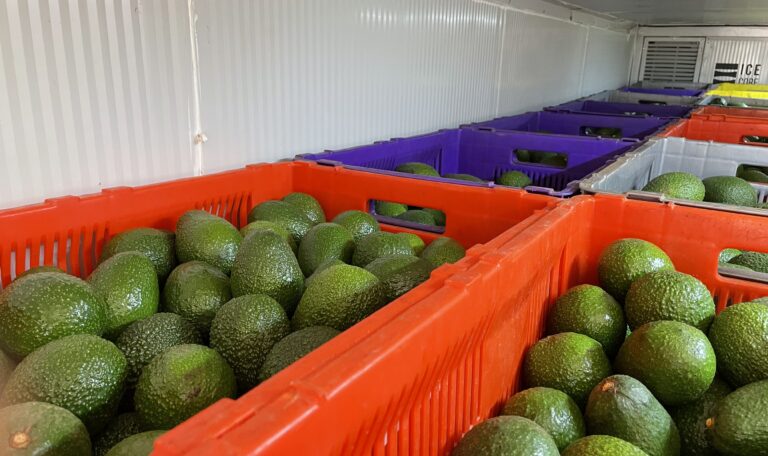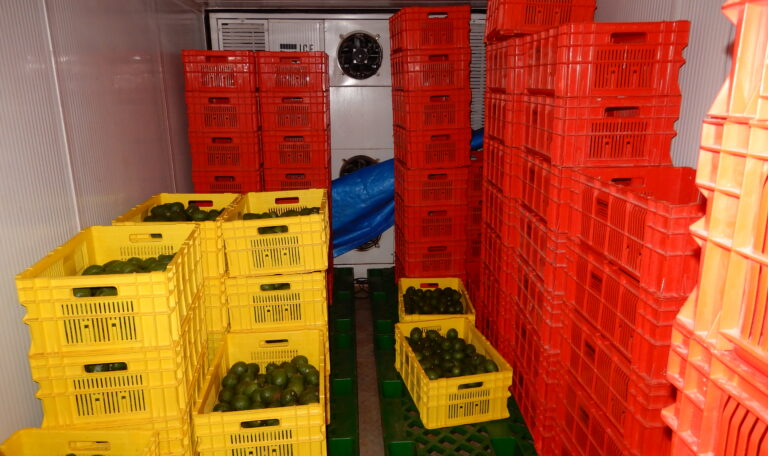Introduction
In a world where fresh, high-quality food is both a necessity, the magic of prolonged shelf life enabled by cold rooms has become critical in food preservation.
The Challenge
Poor storage conditions have long plagued the food industry. Traditional cold storage facilities often rely on fossil fuel-based energy sources, which can be costly, environmentally harmful, and unreliable, especially in remote or off-grid areas. In addition, power outages can lead to temperature fluctuations, compromising the quality and safety of perishable goods.
The SokoFresh Solution
From farm to fork, solar-powered cold storage facilities have reshaped the way we think about storing and extending the life of perishable goods, ultimately reducing food loss and ensuring we can enjoy our favourite foods longer.
Solar-powered mobile cold rooms offer a game-changing solution to address the challenges of food preservation, especially in regions with limited access to electricity and proper refrigeration infrastructure. These innovative units utilize solar panels to harness clean and renewable energy, providing a sustainable and reliable power source for refrigeration hence contributing to a greener and more sustainable food industry.
SokoFresh cold storages have allowed farmers, processors and exporters to extend the shelf life of fruits and vegetables significantly. By controlling the temperature and humidity levels, these cold rooms slow down the natural ripening and deterioration processes. This is achieved through reducing the oxygen levels. Cold storage refrigeration effectively reduces respiration among vegetables and fruits, resulting in longer lifespan.

Prolonged shelf life, made possible by cold storage containers, has far-reaching implications beyond consumer satisfaction. It brings economic stability and contributes to a more sustainable and responsible food industry by:
1. Providing access to wider markets for farmers and producers. The ability to store products allows them to take advantage of favourable market conditions and earn better prices for their goods.
2. Diversification of Markets: Access to cold storage enables farmers and producers to diversify their customer base. They can tap into new markets that may have different seasonal demand patterns, allowing them to stabilize their income throughout the year.
3. Reduced Food Waste. The extended shelf life means that less food ends up in landfills. This reduction in food waste has profound environmental benefits, such as resources are conserved, greenhouse gas emissions are reduced, and strain on land and water resources is reduced.
4. Better Inventory Management. For retailers and distributors, cold storage enhances inventory management. It enables them to stockpile products in anticipation of demand fluctuations, ensuring consistent supply and avoiding shortages.
5. Smart strategies for price stabilization and profit maximization in Agriculture. Farmers are often at the mercy of fluctuating market conditions. By having the ability to store their products, they can avoid selling during periods of oversupply when prices are low. This risk mitigation strategy allows them to wait for more favourable market conditions, potentially earning better prices for their goods.

Conclusion
The magic of prolonged shelf life with cold rooms is transforming the way we consume and think about food. It’s a sustainable solution that addresses the challenges of food loss, supply chain inefficiencies, and the desire for year-round access to fresh, nutritious goods.
As we continue to develop more energy-efficient and environmentally friendly solar cold storage solutions, we are taking a significant step toward creating a food system that is both reliable and responsible. The journey of these perishable products from farm to your table is now guided by the invisible hand of cold storage, ensuring that we can savour the flavours we love for longer and contribute to a more sustainable, fresher future.
